Audio engineer and Music Producer, Priyanka SE is based in Mumbai and has five years of audio and music freelancing under her belt. Her work covers a broad spectrum: from film scoring, sound design and dubbing to recording an array of musical genres. A success story for anybody, but for a woman in India, she’s had to break down more barriers than most.
Her story begins at home: with a lot of her family in medicine, finance and engineering, her parents encouraged her in the STEM fields of academia. In fact, Priyanka had always found herself drawn to music, taking piano lessons and training in Hindustani classical music from the age of seven. She knew that was what she wanted to do, so after persuading her folks that she was serious about it, she found herself a music school and studied for a bachelor’s degree specialising in Sound Engineering.
Here’s Priyanka with the rest of her story:

All my three years as an undergraduate in sound school, I was the only girl out of around 70 students. I knew right from the beginning that if there weren’t any girls to even study this subject, I probably wouldn’t find many when I started working in the field, either.
That didn’t dim my love for sound, though.
I was learning something entirely new – the technical aspects of sound and music: what goes on behind the stage, beyond all the glamour, in this artistic field; what it takes to brilliantly record a song track for millions to listen to and how sound adds to the visuals and brings an entire film to life!
I mastered the digital software & outboard gear skills, aced my Avid & Apple certification for audio professionals, and also began composing and producing music of my own. I did a number of internships alongside my course, including one in my college itself. A few clashes here and there with my male batch mates, but I was fortunate enough to have the best faculties to guide and support me.
After course completion, I returned to Bombay – the hub of Indian Mainstream Media, Music and Film Industry. My parents asked me to look for a stable 9 to 5 regular day job. It was quite a task for me to explain to them that long working hours and erratic schedules are a part of this field.
I had the expertise and talent, but lacked contacts and networks.
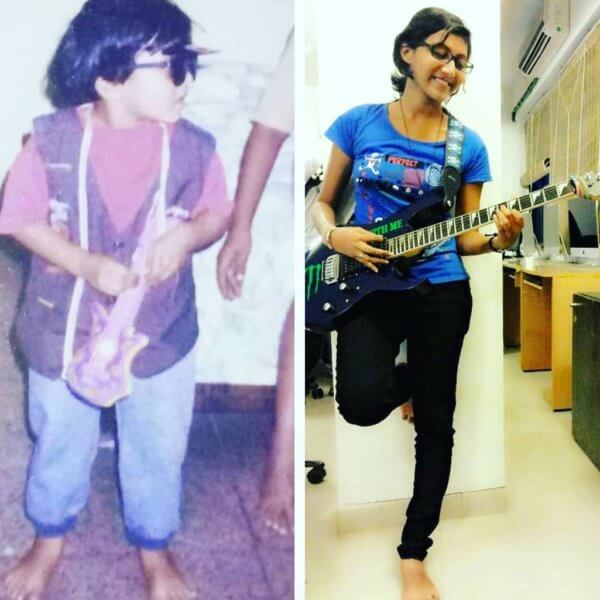
My first job, which was at a popular television channel, lasted for not more than three months. The head of the sound department told me that he thought I was in this field “just as a hobby” and that I should “get into some other mass media field such as print, like most women, until I got married and wouldn’t have to work further.” He also told me that working night shifts was risky, and hence I was, in a way, a liability.
Why should I let anyone else judge my commitment and dictate my future?
I decided to quit. I joined another studio – again for a very short period, as the owner didn’t believe that I’d succeed as an audio engineer. He wanted me to work full-time, but unpaid, under the guise of exposure and experience.
“If you’re good at something, never do it for free” – The Joker, Batman.
Whenever I did get a good opportunity because of my skills, guys would claim that it was because I was a woman, or that competition was less. What they didn’t gather was that as a female, I had a whole bunch of other challenges and issues to tackle that they did not. Neither did I experience any sort of compensation or leniency because of my gender – nor was I expecting any.
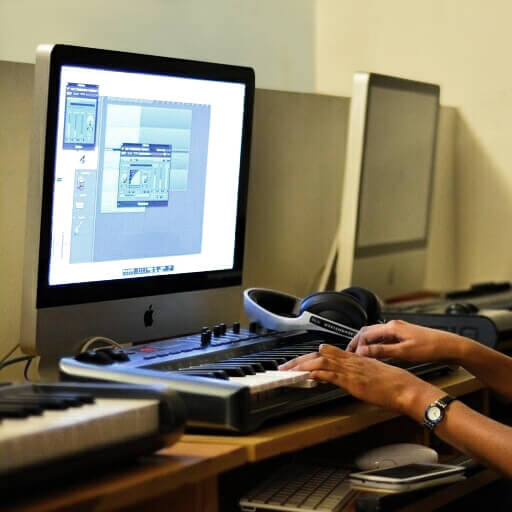 Another studio told me that I was “aggressive, manly, less feminine; a brash talker who lacked female creative input.” How does one classify creativity according to gender, I wonder?
Another studio told me that I was “aggressive, manly, less feminine; a brash talker who lacked female creative input.” How does one classify creativity according to gender, I wonder?
The idea of working for someone else was something that I really started to abhor and also be scared of. I started questioning myself and having second thoughts that maybe I should go look for a less male-dominated field where I didn’t have to face such constant misogyny and be surrounded by clichéd stereotypes and hackneyed ideas. Since it is still a relatively unique field in India, my relatives and other acquaintances who knew nothing about it, also suggested the same.
But what if I experienced similar scenarios everywhere?
At that point, I was so done with the system and the field that I was jobless for months. I even sold off my piano and guitar – my only prized possessions – out of frustration, because they were a constant reminder of something I could achieve, but chose not to anymore: creating music.
One day, I got a call from an acquaintance who wanted to know about my field for their daughter. I was flabbergasted. Should I say that this field wasn’t for women even if they had the passion for it? Wouldn’t that make me an accomplice in our societal patriarchy? Or say that I was a failure?
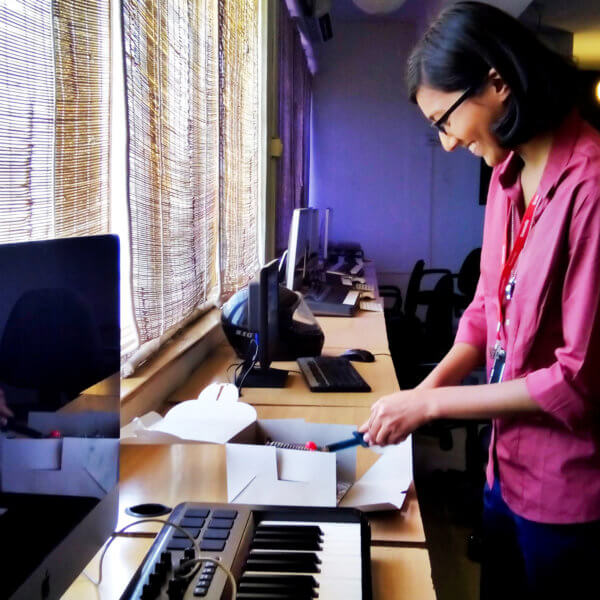 This made me question further: what message or example does this set for the women of the younger generation who decide to get into this field and find themselves in the same predicament? They’d have no one to look up to or guide them. They too would feel lost and decide to quit. And the gender ratio in our field would continue to remain uneven.
This made me question further: what message or example does this set for the women of the younger generation who decide to get into this field and find themselves in the same predicament? They’d have no one to look up to or guide them. They too would feel lost and decide to quit. And the gender ratio in our field would continue to remain uneven.
Hence, giving up wasn’t a choice.
I refused to start believing what everyone else had to say about me. I decided to get back into the field as a freelancer, started working on small scale projects on sound design, dubbing, sync-sound and also began conducting guest lectures & fun workshops on music programming, theory, arranging and production. For someone who had just started out on their own again, after a long hiatus due to personal setbacks – struggle, competition, unstable money and lack of projects – it was truly a messy phase.
Slowly but surely, with more and more work projects and practical experience, recognition came my way.
People are still surprised when they notice that there’s a woman working behind the console. Some artists seem to be more comfortable with it. Especially female musicians and actors, who claim that they can be themselves and not at all feel intimidated like they do around male engineers. Now that’s a compliment! Work done with ease and devoid of any sort of limitations brings out the best results.
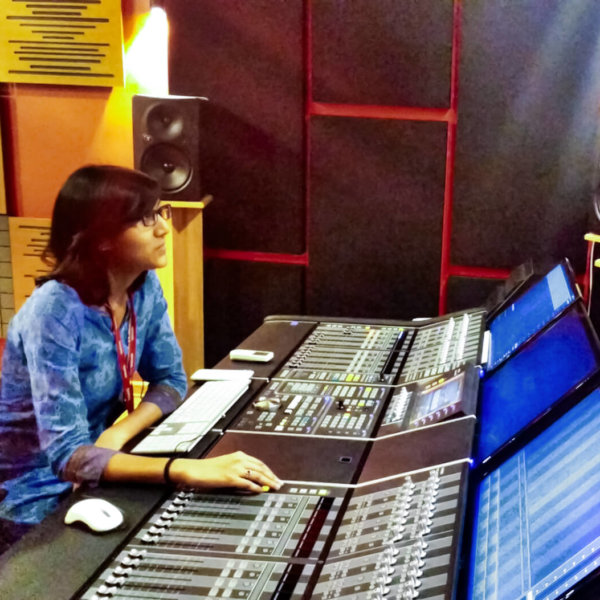 I believe in promoting diversity, inclusion, gender equality and defying all kinds of stereotypes that surround men and women, both. It’s high time we move past conservative gender roles. Women are much more than shopping and accessories.
I believe in promoting diversity, inclusion, gender equality and defying all kinds of stereotypes that surround men and women, both. It’s high time we move past conservative gender roles. Women are much more than shopping and accessories.
Women can also be nerds; women can be gadget freaks and audio geeks too!
No one should judge an employee by the way they talk or walk or by what gender, race, or class they belong to, only by their skills. “Am I getting the job done and am I getting it done right? Am I bringing quality output to the table?” – is all that should matter.
I’m so, so grateful to the few good men who have been a consistent support and have helped me with their tremendous insights and knowledge with regards to not just the field, but also the business and politics behind it. No gender is superior or inferior. We shouldn’t tear each other down and instead be open to work as a collective – share ideas, create, innovate and inspire.
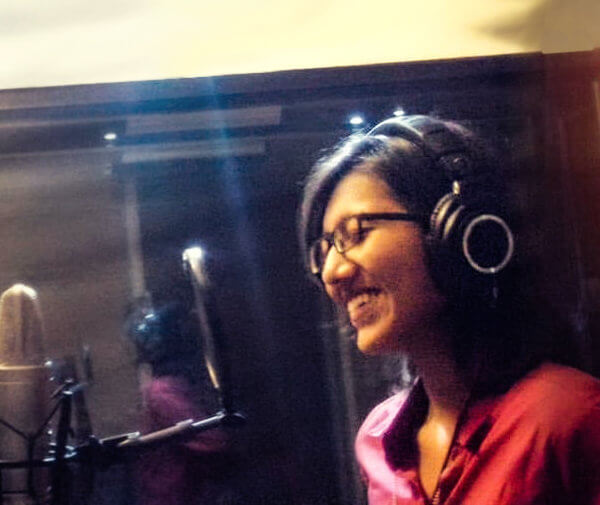 And thus, I encourage and hope that more and more women opt for unconventional career paths, have an undeterred approach towards their goals, and also help their female co-workers along the way.
And thus, I encourage and hope that more and more women opt for unconventional career paths, have an undeterred approach towards their goals, and also help their female co-workers along the way.
As for me, I still have so much more to learn, a great deal to do and a long way to go.
Thanks for your insights, Priyanka – and for not giving up! Here’s to lots more success (and diversity) in the audio industry.
To find out what Priyanka SE is up to, check out her Soundcloud, Facebook and Instagram pages.